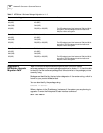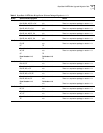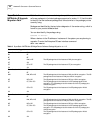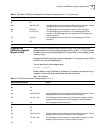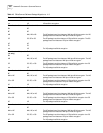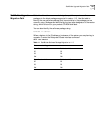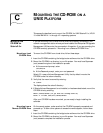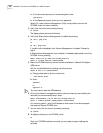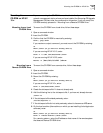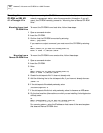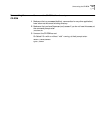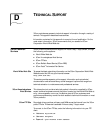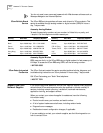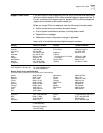
104 APPENDIX C: MOUNTING THE CD-ROM ON A UNIX PLATFORM
a At the command prompt on the remote system, enter:
/usr/bin/su
b At the Password prompt, enter your root password.
Solaris 2.5.x uses a Volume Management Utility that by default mounts the
CD-ROM under the /cdrom directory.
3 Verify that the mount occurred by entering:
ls /cdrom
The display shows the cdrom0 directory.
4 Verify that Solaris Volume Management is installed by entering:
ps -aux | grep vold
or
ps -ef | grep vold
If /usr/sbin/vold is displayed, then Volume Management is installed. Proceed to
step 5.
If Solaris Volume Management is not installed, or has been deactivated, mount the
CD-ROM drive by entering:
mkdir /cdrom (if you have not already done so)
mount -r -F hsfs /dev/sr0 /cdrom/cdrom0
5 Make the CD-ROM directory (/cdrom/cdrom0) available for Network File System
(NFS) clients.
Edit the /etc/dfs/dfstab file by adding the following line:
share -F nfs -o ro /cdrom/cdrom0
a Change directories to /etc/init.d and enter:
./nfs.server start
b Enter:
shareall
or
exportfs -a
You may need to start the NFS daemons.
6 On the local network management station (the one where you are installing the
software), at the command prompt, enter:
mkdir /cdrom/remote (if you have not already done so)
mount -r <remote_system>:/cdrom/cdrom0 /cdrom/remote
For <remote_system>, enter the IP address or host name of the remote system
that does not have a CD-ROM drive.
7 You can verify that the mount occurred by entering:
cd /cdrom
8 To display a directory of the CD-ROM, enter:
ls
After your CD-ROM has been mounted, you are ready to begin installing the
software.



